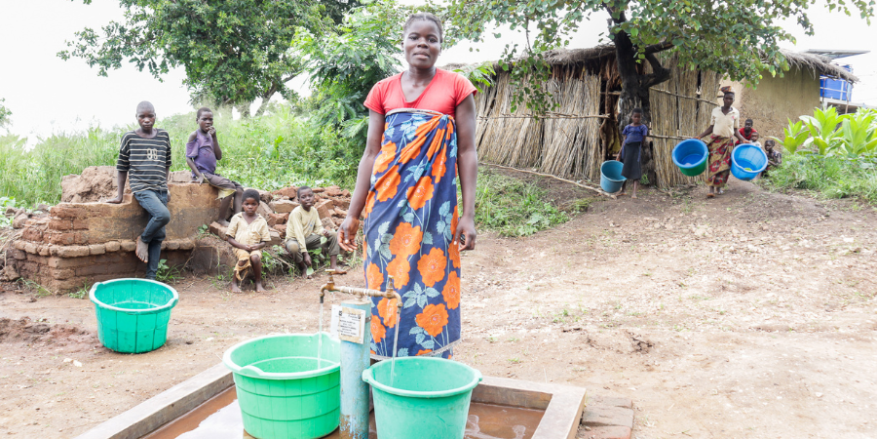After a cholera outbreak in Malawi’s Mtungwi village killed seven people and affected 280 others, Self Help Africa worked with the local district council to help prevent and protect the communities from further outbreaks of disease.
A community needs assessment was carried out with Dowa district to update the water and sanitation systems of the communities around Mtungwi; who had no proper latrines and were reliant on a shallow well linked to a nearby dirty river. We installed latrines and a solar-powered water system for eight local communities including a school and health centre – benefiting nearly 2,800 people.
For these communities, access to clean water is a transformative development. Dalesi, a resident in one of the communities, said: “We used to spend our time and energy searching for water. Now we have enough time to focus on economic activities, and our children can stay in school”.

The system, with a total of ten taps, has a capacity of 20,000 litres and serves eight communities, a school, and a health centre. In total, the system is providing safe, clean water to 344 households and a total of 2,780 people.
It has also created job opportunities for young people, who have been trained as plumbers and electricians in order to maintain the water points. This community-led sanitation approach supports communities to identify and solve their own water and sanitation problems and ensure the upkeep of vital rural water delivery systems for communities.
Chikondi, a local teacher, said: “We are living in a town now as we are now able to drink safe and clean tapped water just like people living in townships.”
Across the Dowa district, Self Help Africa is working hand in hand with local partners and communities to establish clean water access in 170 communities.

